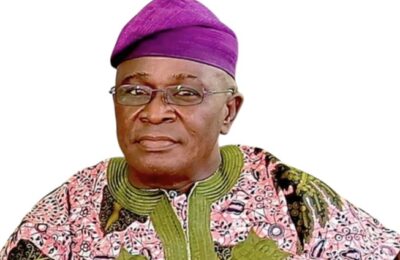Nigeria, a nation of great promise, continues to be haunted by the ghost of inconsistent leadership—politics in liquid form. Our leaders, instead of standing firm like pillars of righteousness, often morph into whatever shape the political landscape demands, like water taking the form of its container. This fluidity is not a virtue but a crisis, a moral and political failure that has left the country adrift, devoid of stable leadership, national vision, or ethical governance.
Conviction is the foundation of true leadership. The Bible warns in James 1:8 that “A double-minded man is unstable in all his ways.” Yet, Nigeria is governed by men who switch political affiliations as effortlessly as traders adjust to market demands. Today’s reformist is tomorrow’s dictator; today’s opposition crusader is tomorrow’s praise-singer of the same system they once condemned. What drives this? Not principle, but personal ambition, survival, and the hunger for power.
This crisis of conviction is evident in Nigeria’s history. Take Adams Oshiomhole, for instance. He once stood as the fiery Nigeria Labour Congress (NLC) leader, a champion of the masses, the voice of resistance against oppressive governments. But when he crossed over to the ruling class under the All Progressives Congress (APC), he became something else entirely. The same Oshiomhole who once led street protests against anti-people policies began justifying similar policies when power was placed in his hands. His transformation from a radical activist to a political godfather is a perfect example of how many Nigerian leaders abandon principle for political convenience.
Similarly, consider Jibrin Isah “Echocho” of Kogi State. A man who once had strong financial sector backing, seen as a fresh breath of leadership, only to later be swallowed by the very system he once sought to challenge. Rather than redefine governance in Kogi, he aligned himself with the prevailing tides, becoming another figure in the cycle of predictable political compromise.
And what about Nasir El-Rufai? Once a staunch critic of godfatherism and political compromises, he was known for his reforms in the Federal Capital Territory (FCT). But as time went on, he adjusted himself to the system, learning the art of political survival. He became the same kind of power broker he once despised. The transformation of El-Rufai is a textbook case of how even the most principled men can change when faced with the brutal realities of Nigeria’s political terrain.
It’s no surprise then that politicians whisper among themselves: “If you want to remain relevant in the system, flow with the system.” But should leadership be about flowing with the system or changing the system? Nigeria suffers not because we lack capable leaders but because many of them have chosen to be politically malleable rather than morally resolute.
Such inconsistency weakens governance, fuels public distrust, and fosters an environment where policies are reversed overnight based on political expediency. The result? A nation that struggles to move forward because its leaders lack the moral spine to stand by their words. As Juanita Bynum rightly said, “If you don’t stand for something, you will fall for anything.” Nigeria’s leaders have fallen for everything—greed, power, tribal sentiments, and selfish gain—at the expense of the common man.
The fluidity of leadership is also a symptom of spiritual decay. Throughout the Bible, God raised leaders with unwavering faith—Moses, David, Daniel—men who stood their ground even in the face of danger. Where are such leaders today in Nigeria? Instead of a Daniel who refused to bow, we have modern-day politicians who bow to every god of convenience—be it money, foreign interests, or political godfathers.
Prophet T.B. Joshua once said, “The beauty of life does not depend on how happy you are, but how happy others can be because of you.” True leadership is about service, sacrifice, and consistency. Nigeria does not need leaders who drift with the tides of convenience but those who anchor themselves in moral integrity.
Until Nigeria embraces leaders with conviction—men and women who would rather lose an election than lose their integrity—the country will remain stuck in the cycle of recycled failures. It is time for a revival, not just in churches but in government houses. A revival of leadership, where a man’s word is his bond, where decisions are guided by justice, and where leaders are held accountable to the people and to God.
For Nigeria to rise, we must reject politics in liquid form and demand leaders who are solid as a rock, firm in their beliefs, and unshaken by the temptations of power. As the Bible says in 1 Corinthians 15:58, “Be steadfast, immovable, always abounding in the work of the Lord.” This is the standard. Anything less will keep Nigeria drowning in the waters of instability.
– Inah Boniface Ocholi writes from Ayah – Igalamela/Odolu LGA, Kogi state.
08152094428 (SMS Only)




